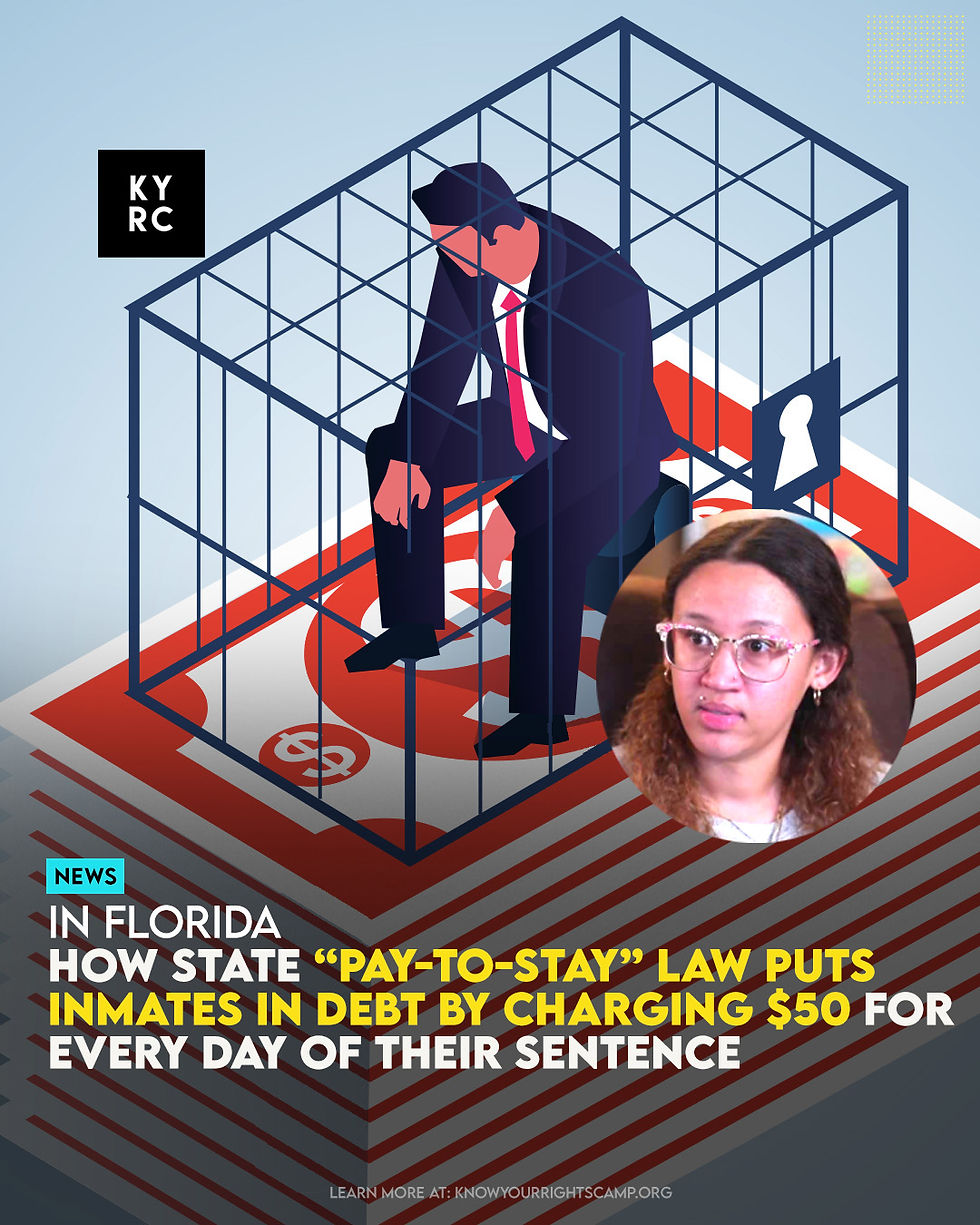How State "Pay-To-Stay" Law Puts Inmates In Debt By Charging $50 For Every Day Of Their Sentence
- ural49
- May 15, 2024
- 1 min read

In Florida, a practice known as "pay-to-stay" burdens former inmates with debts accrued for their time in prison. Florida prisoners are charged $50 daily for their entire sentenced duration, even if they are released early.
"We think it's unconstitutional," Lisa Foster, Co-Executive Director of the Fines & Fees Justice Center, told WFTS Tampa Bay. "It's not proportionate either to the underlying offense or to a person's financial circumstances."
This results in overwhelming debt for many, as highlighted by Shelby Hoffman, who incurred a $127,000 bill for a 7-year sentence despite serving only 10 months. Despite rebuilding her life, obtaining a degree, and planning a career in case management, Hoffman's debt prevents her from moving forward.
"I've been out of prison 7.5 years at this point," Hoffman added. "When I have trekked so hard to get a track record that I have now, and you are imposing something that I can't pay off in a lifetime, so I am stuck . . . I have a family now, I have a daughter, a wonderful husband, I have a home, I have all these accomplishments I've worked so hard, so hard to maintain."
Hoffman, now seven and a half years out of prison, has established a stable family life and achieved significant personal milestones. Yet, the pay-to-stay fines persist, trapping individuals like her in financial turmoil long after their release. Critics argue that these fines serve little purpose other than punishing former offenders further, questioning the constitutionality and proportionality of the practice.
This financial burden is inefficient for revenue collection as it predominantly targets low-income individuals who cannot fulfill their debts. Despite significant opposition and the evident personal impacts on people like Hoffman, pay-to-stay laws remain largely unchallenged across most states.
Link: Reason



Comments